
Understanding kitten vaccinations

Dr Jessica May, FirstVet vet
4 December 2021 | 8 minutes read
Are you a new kitten owner that’s ready to dip your claw into the world of vaccinations? You’ve come to the right place to learn about vaccinating your kitten. Join FirstVet vet Dr Jessica May as she takes a look at why vaccinating is important, along with which injections they need and how often they need them. Oh, and of course, when it’s safe to unleash your curious cat into the world…
Table of Contents
- Why do I need to vaccinate my kitten?
- What vaccinations do kittens need in the UK?
- How many vaccinations do kittens need?
- How much are kitten vaccinations?
- When can kittens go outside after vaccinations?
- Other questions about kitten vaccinations
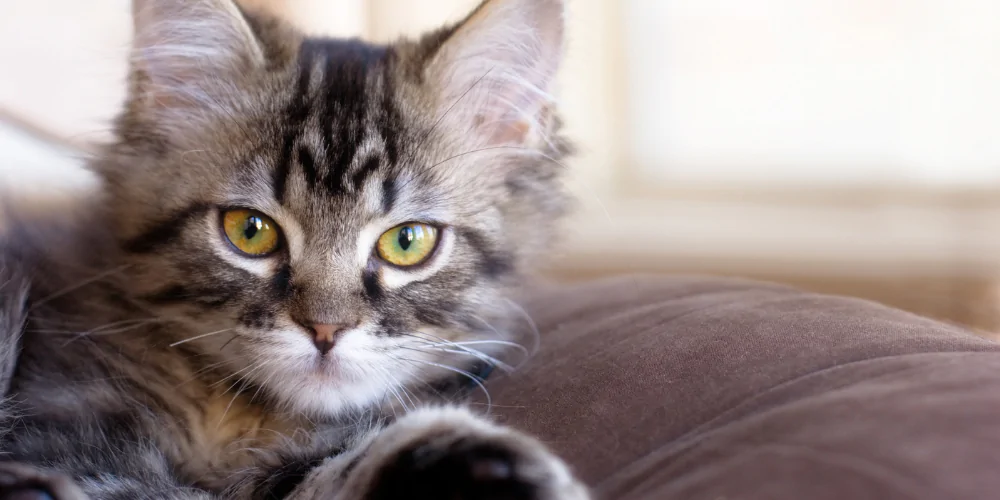
Why do I need to vaccinate my kitten?
Let’s jump in with all four paws on why you need to vaccinate your kitten. Vets advise that your frisky new feline should be vaccinated to help keep them safe from diseases like feline immunodeficiency virus (FIV), which could be fatal to their delicate immune system.
Vaccinating your kitten may also reduce the likelihood of any diseases passing on to other cats. Once your kitten has had their initial inoculations, vets recommend that you continue to maintain a regular vaccination schedule into adulthood and their senior years.
Many kitten insurance providers may not offer cover for conditions which could have been prevented with vaccinations, so don’t forget to check your policy wording.
> Can unvaccinated kittens be around vaccinated cats?
Your unvaccinated kitten could be around a healthy vaccinated cat but it may be wise to err on the side of caution. Vets often recommend to keep your kitten inside the house and away from other cats outside of the household until a few weeks (or your vet’s recommended wait time) after their primary vaccination course.
While your new feline is still growing and developing, they’ll be at a higher risk of getting ill. If your kitten hasn’t had their injections yet, it’s important to keep them away from other unvaccinated kittens and cats.
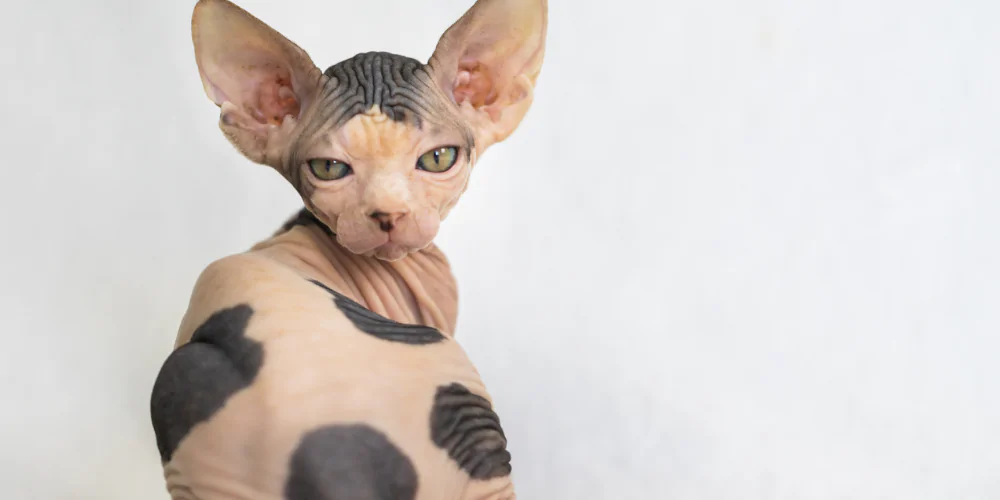
What vaccinations do kittens need in the UK?
All kittens in the UK commonly need vaccinations against cat flu and feline parvovirus. If your cat will be exploring the great outdoors, vets will also recommend giving them a vaccination against feline leukaemia virus.
Don’t forget to check your country’s individual requirements if you’re not based in the UK.
> Cat flu (feline influenza)
Cat flu is the common name for feline influenza, a contagious illness that’s similar to the human flu which can be serious in kittens.
- Cat flu spreads in snot and saliva and can also be passed on through contact with infected surfaces such as bedding and bowls.
- Symptoms include sneezing, a snotty nose, fever, coughing, and weepy eyes.
- Other symptoms that can appear are reduced appetite, low energy, eye ulcers, and mouth ulcers.
- Cats who develop feline influenza may become carriers of the illness and have symptoms throughout their life.
- Even if your cat has already had cat flu, having the vaccine may lower the severity and chance of them getting a flare up in the future.
> Feline parvovirus (FPV/feline enteritis/feline panleukopenia)
Feline parvovirus is a potentially fatal virus which is similar to canine parvovirus. It attacks your kitten’s immune system, the lining of their intestines, and sometimes their heart.
- It can be caught through contact with an infected cat and their faeces, as well as contact with items which an infected cat has touched.
- Pregnant cats with FPV can pass the virus onto her kittens, leading to the kittens being born with ‘cerebellar hypoplasisa’.
- Signs your kitten has the feline parvovirus include lethargy, fever, vomiting and diarrhoea, and loss of appetite.
- If your kitten has developed FPV from their mother, they may display issues with their movement or vision.
> Feline leukaemia virus
Feline leukaemia virus is another serious disease which attacks the immune system, making your kitten more susceptible to catching other infections.
- The virus can also lead to tumours and cancers such as leukaemia and lymphoma.
- Your kitten may catch this illness from an infected cat’s bodily fluids such as urine, faeces, and saliva.
- Indications that your kitten has feline leukaemia virus include lethargy, weight loss, fever, vomiting, and diarrhoea.
- Your kitten may also show signs of depression, anaemia, unusual growths, and lack of appetite.
- There is no cure for this disease, so vaccination is important to prevent infection.
> Additional vaccinations
If you’re planning on travelling with your curious kitty outside of the UK, they’re legally required to get a rabies vaccination and get regular boosters. Rabies is a potentially fatal disease that spreads through saliva and can cause weakness, seizures, paralysis, and sensory sensitivity, to name but a few.
Some kittens may also need to be vaccinated against feline chlamydia, a bacteria which is passed on through contact with infected cats. It’s symptoms are similar to cat flu and include fever, lethargy, conjunctivitis, weepy eyes, and sneezing.
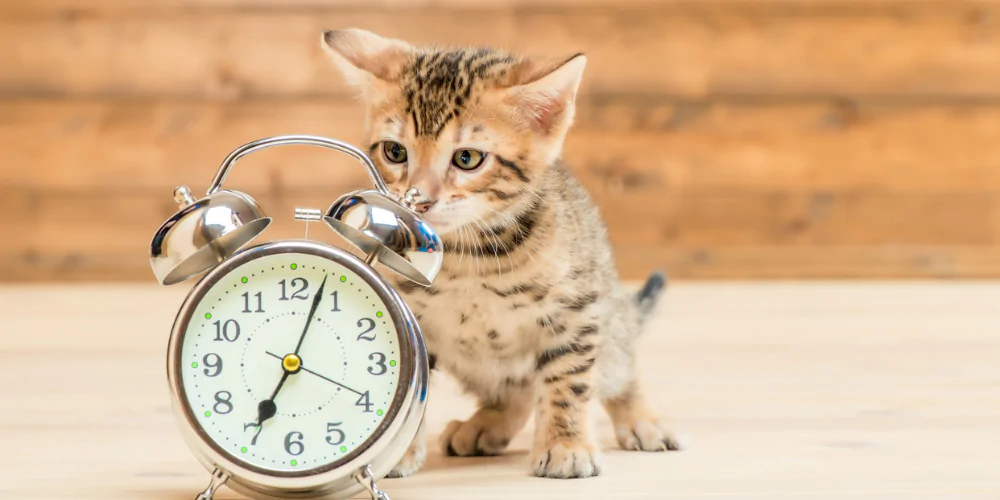
How many vaccinations do kittens need?
Kittens need a primary course of vaccinations to keep them safe and healthy. This normally involves two injections, though may sometimes include three depending on risk.
> When do I need to vaccinate my kitten?
The first injection can be given from nine weeks of age. The second injection is given around two – four weeks after the first one.
> How often should I vaccinate my kitten?
After your kitten has been given their primary course of vaccinations, vets advise to keep up with annual boosters to maintain protection against these infections. Some booster vaccinations may only need to be given every couple of years, and your vet will discuss these with you.
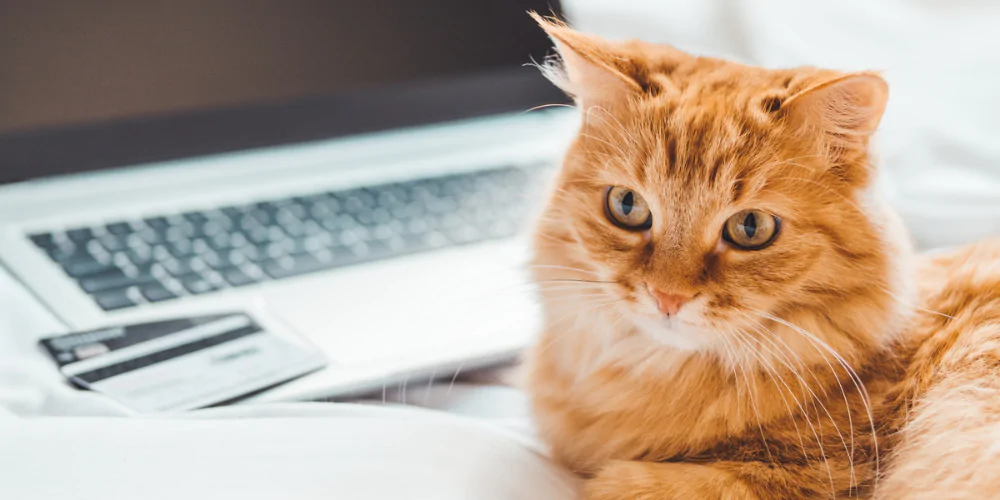
How much are kitten vaccinations?
How much kitten vaccinations cost varies between vet practices, so get in touch with your local practice for their pricing listing. The UK average is around £60 for their primary course but this will differ depending on your location.
Many vets give you the option to join a healthcare plan where you can pay a monthly amount that covers annual checkups, vaccinations, and flea and worming treatments.
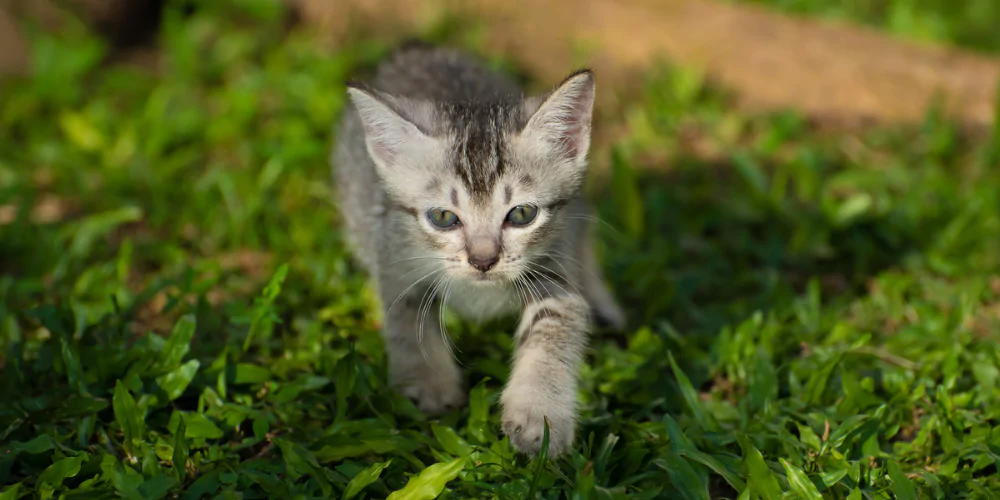
When can kittens go outside after vaccinations?
Your kitten will usually be fully protected against the infections we mentioned around two weeks after they finish their primary vaccination course. Until then, keep them indoors (yes, we know they may be hiss-terical to get out and explore, just be patient!).
Blue Cross recommends that you wait until your kitten is five months old before you unleash them into the world, as by this time they’re nearly fully grown.
Keep in mind that microchipping your kitten is compulsory under the new animal welfare plan, and getting this done means that your bold feline can be identified if they get lost while exploring new places.
> Can kittens go in the garden before their injections?
Because kittens can climb and so may be able to escape your garden, you might want to wait until they’re fully vaccinated before letting them into your backdoor jungle. After all, you don’t want your little rascal pulling an escape artist trick on you.
> I let my kitten outside before their vaccinations
Letting your kitten go outside before they’ve had their vaccinations could mean they pick up a virus, as they’re not yet protected. Speak to your vets for advise, and they will be able to recommend if your kitten needs a health check.
> My kitten missed their second vaccination, what should I do?
If your kitten has missed their second vaccination, take them to the vet. Depending on how overdue they are, they may still be able to be given the injection. A longer delay between injections in their primary course could mean that their immune system isn’t as active, and so they might need additional doses.
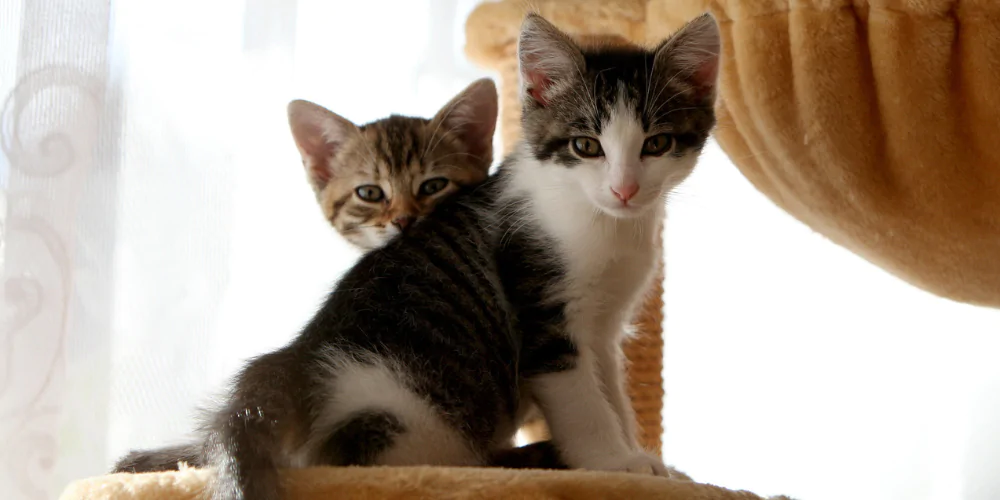
Other questions about kitten vaccinations
> Should I be concerned about any vaccination side effects in my kitten?
Most kittens are absolutely fine after getting their vaccinations. There is a rare chance that they may experience side effects, which tend to be mild and pass within 24 – 48 hours. Symptoms may include lack of appetite, lethargy, sneezing, coughing, and a slight fever.
More serious reactions and side effects are extremely rare. If you have any concerns, speak to your vet and they will be happy to discuss things with you.
> Can I do my kitten vaccinations at home?
Vets recommend that your kitten comes into the clinic for vaccinations to be carried out by a medical professional, to ensure they’re given safely and correctly. On rare occasions, your kitten may need to be vaccinated at home, but this is done only by recommendation from your vet.
> What else do I need to do to protect my kitten?
At your kitten’s appointment, your vet will discuss some different ways you can keep them safe and healthy, such as:
- Microchipping, a soon-to-be legal requirement in the UK.
- Diet, including how to pick a nutritionally beneficial option and how to change over to a new type or brand.
- Worming treatment, which is suited to their age and weight. Up to 16 weeks old, they’ll be wormed every two weeks. After this, treatment is normally every one to three months.
- Flea treatments, available in different options such as tablets, spot-on, injections, and collars.
Raise a claw if you want a happy and healthy kitten! As do we, which is why we offer lifetime kitten insurance.


